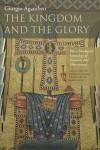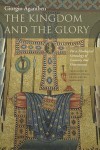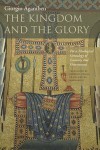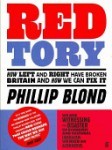Ideological State Apparatuses, a phrase made famous by Louis Althusser, function in society to keep the bourgeoisie culture dominate. This is done through institutional establishments, such as the church, family, etc. In the US, the American Dream has been a dominant ideology that gives hope to the unprivileged that they too have a chance to thrive in a higher economic status. Unfortunately, this myth rarely comes to fruition for the lower class or the immigrant because achieving upward social mobility is nearly impossible. The American Dream thus represents a master-signifier. Something present in our culture that one must believe to be a welcomed person in society. This week’s lectionary readings could be related to the ISA that penetrate societies. From the Hebrew Scriptures passage it speaks of the beginning of David’s career as King surrounded by a religious ISA. In the Christian Scripture, Jesus speaks a parable of how everything shall eventually become God’s Kingdom. These Scriptures are both politically driven, one speaking of an earthly kingdom ruled by a king chosen by God, and the other concerning the Kingdom of God.

The field of political theology has not yet been rigorously defined. It is more a field of affinities than a clearly delineated disciplinary space—a kind of “zone of indistinction” between theology and political theory where the terms of debate are still very much up for grabs. Even as the range and shape of political theology as a field of inquiry remain somewhat inchoate, however, there are points of reference that already seem more or less obvious or obligatory. The work of Giorgio Agamben is surely one of them, a status that The Kingdom and the Glory will just as surely reinforce. […]

Every week on the lecture trail I meet progressives who are demoralized and/or infuriated by Barack Obama’s performance as president. They insist that they will not work for him again or even vote for him. Many have signed petitions saying as much. They are finished with Obama.
Often they assume that I agree, since I have criticized many of Obama’s policies throughout his presidency, and I have been deeply involved in the Occupy movement. But my progressive friends and allies are overlooking that many of them made this very mistake in 2000, that their charge of betrayal is exaggerated, and that Barack Obama, for all his temporizing and capitulation, is in important ways America’s most progressive president since FDR. Moreover, electing a more compelling human being to the White House is probably impossible in this country. It is too soon to give up on our first African American president. So I wrote The Obama Question: A Progressive Perspective [….]

Six months or so after Lehman Brothers disappeared, and two weeks after the Dow Jones hit a twelve-year low, the creators of South Park ran an episode called Margaritaville, the primary storyline of which recounted the failed attempt by one of the boys to return the eponymous blender that his idiot, moralizing father had bought. In a gleefully sloppy primer on the financial crisis, Stan follows the increasingly inscrutable chain of capital from the profligate consumers, to shady third-party financiers, to the securities bundlers of Wall Street, and ultimately, to the public sector ex post facto debt assumers. At the heart of financial darkness, Stan’s odyssey takes him to the Treasury Department where a tribunal of economists determines the value of his margarita maker to be ninety trillion dollars, a calculation determined, it is subsequently revealed, through a divining process involving men in powdered wigs, a kazoo, and a decapitated yet still ambulatory chicken tossed onto a wheel-of-fortune style game board labeled with a range of monetary, fiscal, political maneuvers: Socialize/ Let Fail/ Coup d’etat/ Bailout!
The pursuit of truth and justice is often onerous and taxing. The incremental gains accomplished by strikes and protests, grassroots organizing, and community coalitions pale in comparison to the large-scale success achieved by corporations and the governmental institutions who collude with each other. The quest to halt imperialistic conquests by the American war machine, ameliorate poverty, reform a racist and unjust judicial system, and empower communities can often seem like a dead end street, but the light of hope still shines through the darkness […..]

As the humanities have rediscovered religion, new sorts of questions are being asked about religion and politics. Religion is no longer imagined as a check box, as the social sciences would like to see it: something you have or don’t, something that comes in one of several flavors of belief. Now that religion is not only about belief but about practices and ideas, with histories, intertwined with other practices and ideas, the intersection of religion and politics is no longer a point, but a varied terrain with multiple dimensions. […]
What does it mean to be born again? In the vernacular of this age, the language has come to suggest some sort of metaphysical transformation, a shift that promises eternal reward. Believe in Jesus and you are born again, the logic goes, and then you get to go to heaven. For many being born again is the culmination of the Christian task, but for Jesus and his followers this second birth marked a beginning of a dangerous and fraught journey. It entailed leaving behind the safety nets woven and stored up in life and starting fresh, aligned with something new, something politically subversive, socially fraught, and existentially threatening […]
Although often lost in a generic celebration of the giving of the Spirit, this text is one that is filled with questions of ethnicity, language, and diversity. It speaks to the American debate of whether this nation can or should be a melting pot that blends and ignores culture and ethnicity or a mosaic and celebration of the diversity that exists in our midst. But first, some background:
